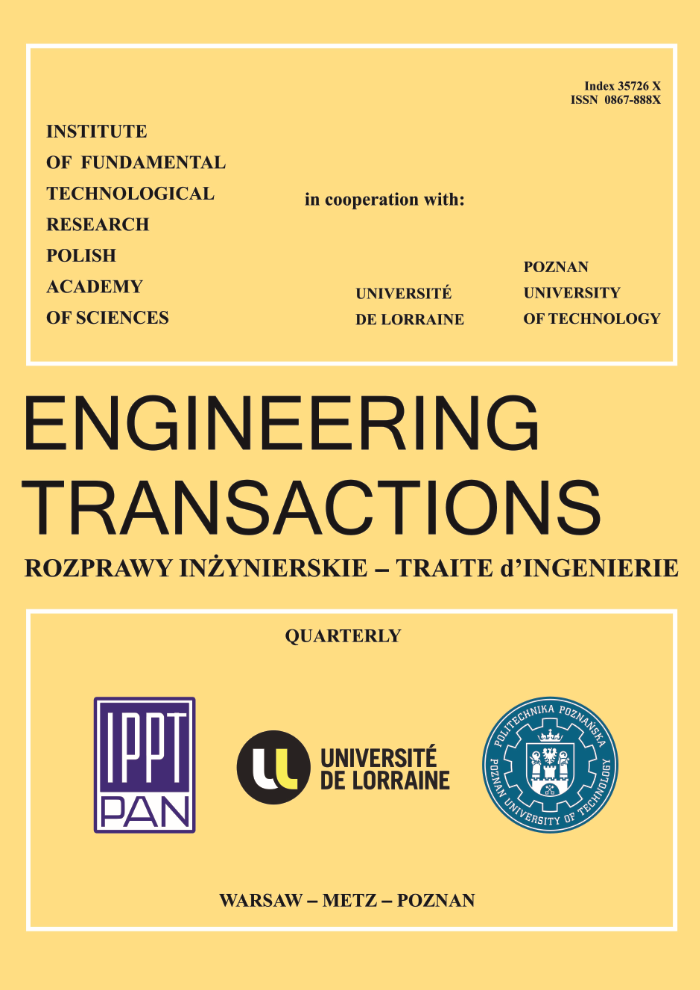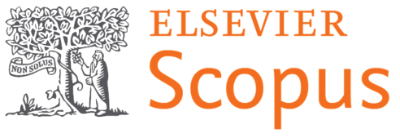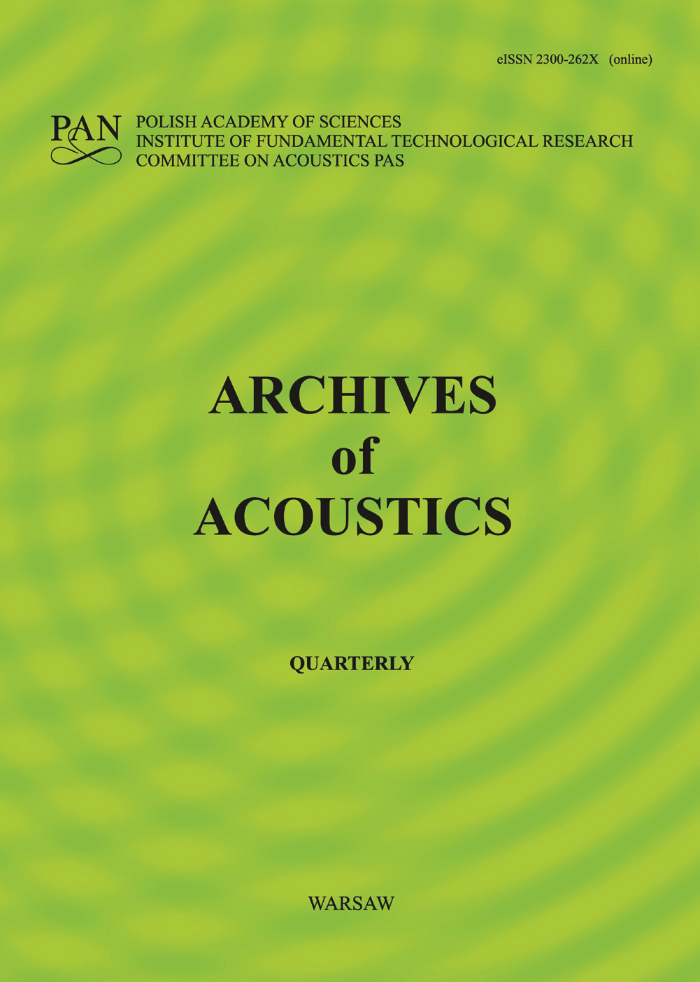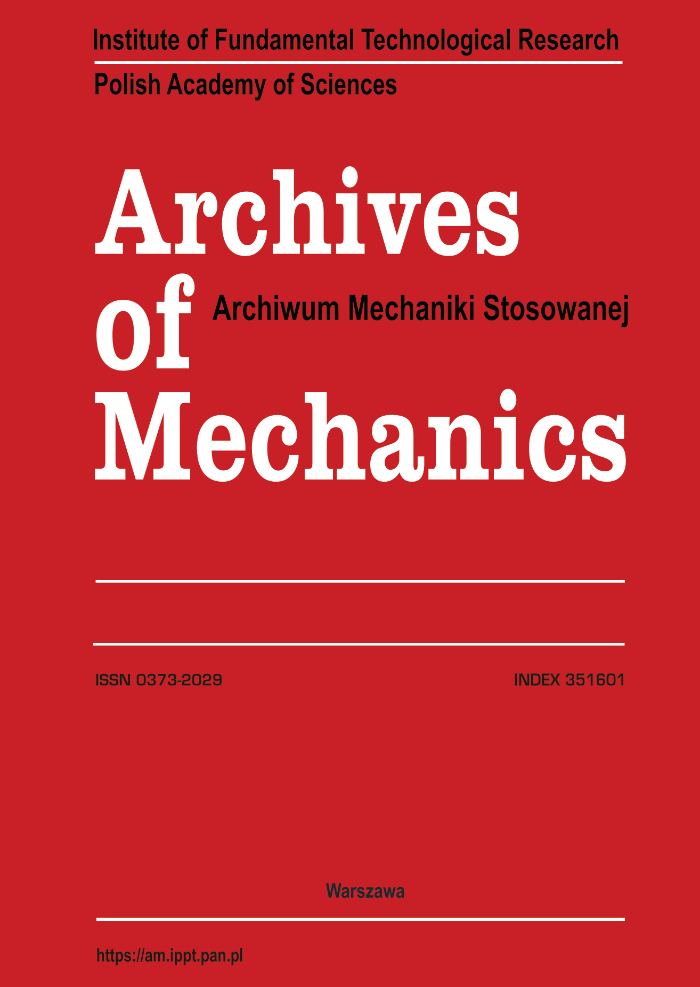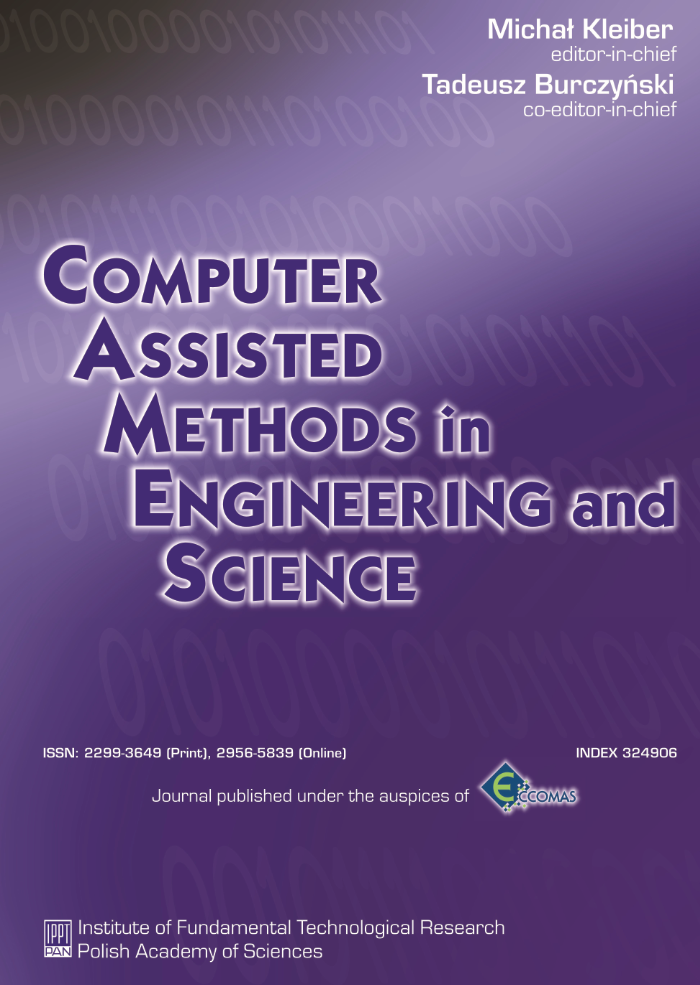Journal Policies
We do care about ethics in the scientific world, and do our best to provide an ethical publication process. The manuscript should be original and should not have been submitted either previously or simultaneously elsewhere, neither in whole nor in part. If there is a plagiarism detected in the article, the manuscript will be rejected and any future publication of this manuscript will be suspended (even after corrections).
Submission declaration
By submitting the article to the Engineering Transactions journal, you declare that the article has never been published before, is not under consideration in other journals, and what is the most important – the article is original, and you have not been using AI to write the article.
Authorship
The Author(s) explicitly reserve(s) copyright and all other intellectual property rights in the article except as specifically provided in aforementioned licence.
Changes to authorship
If there is a change to the authorship of the manuscript – the authors need to prepare a document that states the change, and the authors who are deleted from the authorship have to sign the document by themselves. If there are any situations when you want to add authors (especially after the review process and acceptance of the article for publication), we need a document signed by ALL authors that they agree to add the new author.
Artificial Intelligence usage
Please note, this only refers to the writing process, and not to the use of AI tools to analyze and draw insights from data as part of the research process, or AI tools used to check grammar, spelling, and references. Moreover, it does not apply when AI is a part of a research design or methods (e.g., AI in mechanics research, stress imaging).
The articles fully written by AI will be rejected during the initial phase, before the review process. The use of AI to create images, graphs, or photographs is not permitted. The next submitted articles will never be accepted.
The Engineering Transaction journal does not allow the use of AI by reviewers or editors in the peer-review and manuscript evaluation process, as it is against the journal's policies and ethics.
In the case of using AI as a part of a research design or methods, such use must be described in a reproducible manner in the methods section, including the name of the model/tool, version, extension numbers, and manufacturer.
Funding sources
Information about funding sources have to be added to the manuscript before the reference list.
Peer Review Process
Following long tradition, all articles are peer reviewed and our expert referees ensure that the papers accepted for publication comply with high scientific standards.
- Submissions are initially assessed by the editor for suitability for the journal scope and standards.
- Each deemed manuscript is evaluated at least by two independent reviewers from outside the author's affiliation.
- The Journal provides a single blind peer review process: names of reviewers are not revealed to authors. Reviewers are asked to declare no conflict of interest between them and authors, by either the direct personal relationship or research collaboration in the last two years preceding the time of review. See also Conflicts of Interest Policy.
- Reviewers are asked to do the review within four weeks.
- The written review contains a clear proposal for the publication or rejection of the scientific article in accordance with the conditions of admission.
- On the journal website, the eligibility criteria for the review of articles and for their acceptance or rejection are available.
To honor our reviewers, at the end of each calendar year, we publish both in the printed version (fourth issue of each volume) and on the website a list of people who contributed to the quality of the articles published in our journal. The list includes a group of scientists who have cooperated with us as reviewers. We do not disclose the names of reviewers of specific articles.
Conflicts of Interest Policy
Articles are evaluated fairly and are not necessarily rejected when any competing interests are declared.
Regarding Editors and Reviewers
Journal submissions are assigned to editors in an effort to minimize potential conflicts of interest. The following relationships between editors and authors are considered conflicts and are avoided:
- current colleagues,
- recent colleagues,
- recent co-authors, and
- doctoral students
for which editor served as committee chair.
After papers are assigned, individual editors/reviewers are required to inform the editor-in-chief of any conflicts not included in the list above. In the event that none of the editors/reviewers satisfy all of the conflict screens, co-editors/reviewers who are least conflicted are assigned to the manuscript.
Regarding Authors
The authors are asked to include a Declaration of Conflicting Interests (financial, academic and other kinds) at the end of their manuscript after any Acknowledgements and prior to the Funding Acknowledgement (if relevant), Notes (if relevant) and References, under the heading 'Declaration of Conflicting Interest'. If no conflict exists, authors should include information 'The Author(s) declare(s) that there are no known competing financial interests or personal relationships that could influence the work reported in this paper '.
Plagiarism
- Authors may not present results obtained by others as if they were their own. Authors should acknowledge the work of others used in their research and cite publications that have influenced the direction and course of their study.
- Reproducing text from other papers without properly crediting the source (i.e., plagiarism) and producing papers with almost the same content by the same authors (i.e., self-plagiarism) is not acceptable.
- Submitting the same results to more than one journal concurrently is unethical.
Duplicate submission
Simultaneous submissions of the same manuscript to different journals are not tolerated. The submitted article will be removed without consideration.
Corrections and retractions
All authors have an obligation to inform and cooperate with journal editors to provide prompt retractions or correction of errors in published works.
When an error is discovered in published or submitted work, the mistake should be admitted and an erratum or retraction will be published. Corrections should be approved by all authors of the original article, unless there is a particular reason why this is not possible. In these cases, any dissent among the authors should be noted in the published correction.
An Erratum, a Retraction, and Expressions of Concern will be published in such a manner, and it will be free to access.
- A text will be provided with an appropriate title (Erratum, Retraction, or Expression of Concern) as well as information to identify the article that it refers to.
- It will be published on a numbered page (both in print and online) and listed in the journal’s table of contents.
- It will cite the original article and link electronically with the original electronic publication wherever possible.
- It will enable the reader to identify and understand why the article is being retracted, or should explain the editor’s concerns about the contents of the article.
- It will be in a form that enables indexing and abstracting services to identify and link to original publications.
Engineering Transactions will issue retractions if:
- there is clear proof that the results are unreliable, either because of misconduct (e.g., data fabrication) or honest error (e.g., miscalculation or experimental error);
- the outcomes have been published before elsewhere without proper cross-referencing;
- article contains plagiarism or reports unethical research;
Engineering Transactions will issue errata upon the request of authors if:
- a small portion of an otherwise reliable publication is misleading;
- the author list is not valid (i.e., omitting somebody or including somebody who does not meet authorship criteria).
The new content will be reviewed and subject to the editorial approval considering the impact of the change.
Publishing Fee
Publishing in the journal Engineering Transactions is free of charge. Authors are asked to prepare their manuscript with high diligence (text and drawings).
Copyright
Copyright on any open access article in the Engineering Transactions published by Polish Academy of Sciences and Institute of Fundamental Technological Research, Polish Academy of Sciences, is retained by the author(s).
Authors grant Institute of Fundamental Technological Research Polish Academy of Sciences a license to publish the article and identify itself as the original publisher.
Authors also grant any user the right to use the article freely as long as its integrity is maintained and its original authors, citation details and publisher are identified.
 The Creative Commons Attribution 4.0 International CC BY 4.0 formalizes these and other terms and conditions of publishing articles.
The Creative Commons Attribution 4.0 International CC BY 4.0 formalizes these and other terms and conditions of publishing articles.
Exceptions to copyright policy
For the articles which were previously published, before year 2019, policies that are different from the above. In all such, access to these articles is free from fees or any other access restrictions.
Permissions for the use of the texts published in that journal may be sought directly from the Editorial Office of Engineering Transactions ![]() .
.
